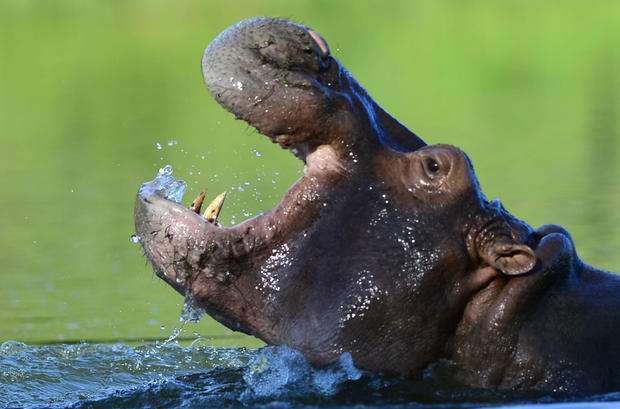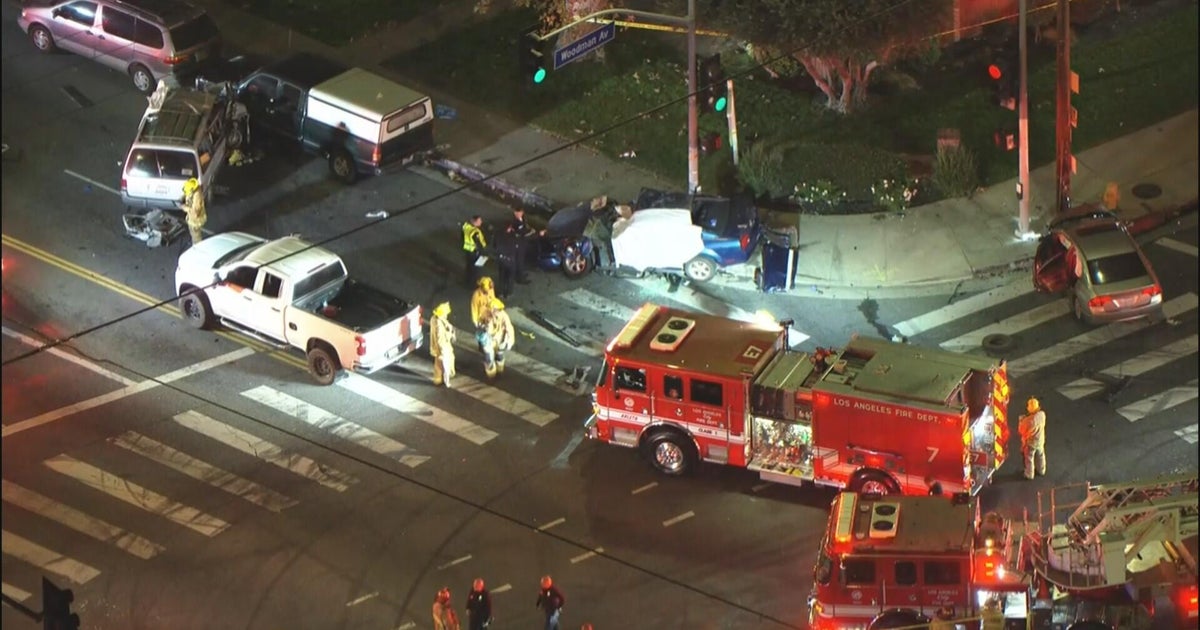One of Pablo Escobar's "cocaine hippos" killed in highway collision in Colombia
A hippopotamus descended from animals illegally brought to Colombia by the late drug kingpin Pablo Escobar has died in a collision with an SUV on a highway near Escobar's hacienda, environmental authorities said Wednesday.
The so-called "cocaine hippos," which spread from the estate into nearby rivers and now number more than 100, have no natural predators in Colombia and have been declared an invasive species that could upset the ecosystem. The crash late Tuesday reflected the additional danger that hippos, which weigh as much as 2 tons, can pose to motorists.
The vehicle occupants were unharmed in the accident in the northwest on a highway from Bogotá to Medellín, police said. The hippopotamus died immediately afterward and was removed to be analyzed, environmental authorities said.
"This is one of the dangers that the presence of this species represents. Many of them cross the highway where many vehicles pass, it is also a danger to people," said David Echeverri López, a biologist at Cornare, the local environmental authority.
"Hippos are unpredictable, at any moment they can attack a person," he added.
A group of them was brought in the 1980s to Hacienda Nápoles, Escobar's private zoo that became a tourist attraction after his death in 1993. Residents of nearby Puerto Triunfo have become used to hippos sometimes roaming freely about the town.
Native to Africa, hippos were declared invasive in Colombia last year, and environmental officials say their population could rise to 400 in eight years. Most of the hippos live freely in rivers and reproduce without control.
Colombia has proposed transferring at least 70 of the animals to India and Mexico to control their population. Last month, officials said it would cost about $3.5 million to deport the hippos.
Scientists warn that the hippos' feces change the composition of rivers and could impact the habitat of manatees and capybaras.
Independent journalist Audrey Huse, who has lived in Colombia for eight years, told CBS News last month that in the 1980's, Escobar imported just four hippos — and now there are nearly 150 of them.
"Because they have no natural predators here, as they would in Africa, the population is booming an it's affecting the local ecosystem," Huse said. "Because they are such large animals, they consume considerable amounts of grassland and produce significant waste, which then poisons the rivers."
The result is that the hippos end up killing fish and threatening endemic species like manatees, otters and turtles, she said.
In 2021, after the Colombian government was sued over its plan to sterilize or kill the animals, a federal court ruled that the hippos can be recognized as people or "interested persons" with legal rights in the U.S. But the order doesn't carry any weight in Colombia where the hippos live, a legal expert said.
The area where they roam is a paradise for the animals who have no predators and ample food and water, CBS News correspondent Manuel Bojorquez reported in 2019. Locals call them the "village pets," but a local biologist told Bojorquez the "dangerous" and "territorial" species is anything but.
Alvaro Molina, 57, said he supports the hippos — even though he is one of the few Colombians to have been attacked by one. He was out fishing one day when he felt a movement beneath his canoe that spilled him into the water.
"The female attacked me once — the first pair that arrived — because she had recently given birth," he said.
Locals say the hippos sometimes come out of the water and walk through the streets of the town. When that happens, traffic stops and people keep out of their way.






